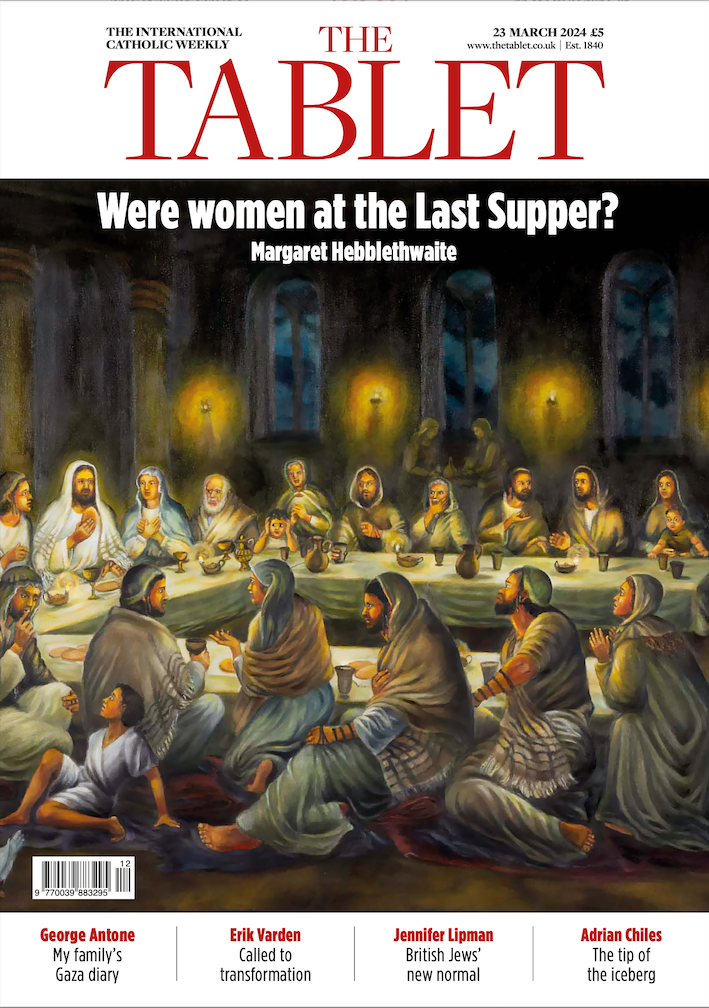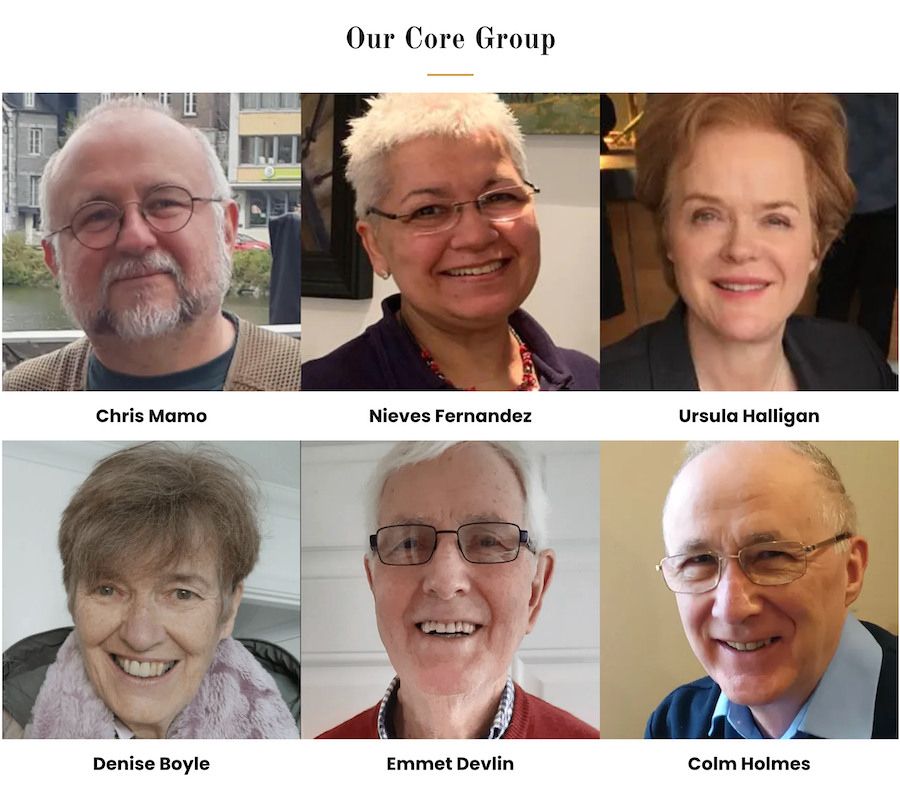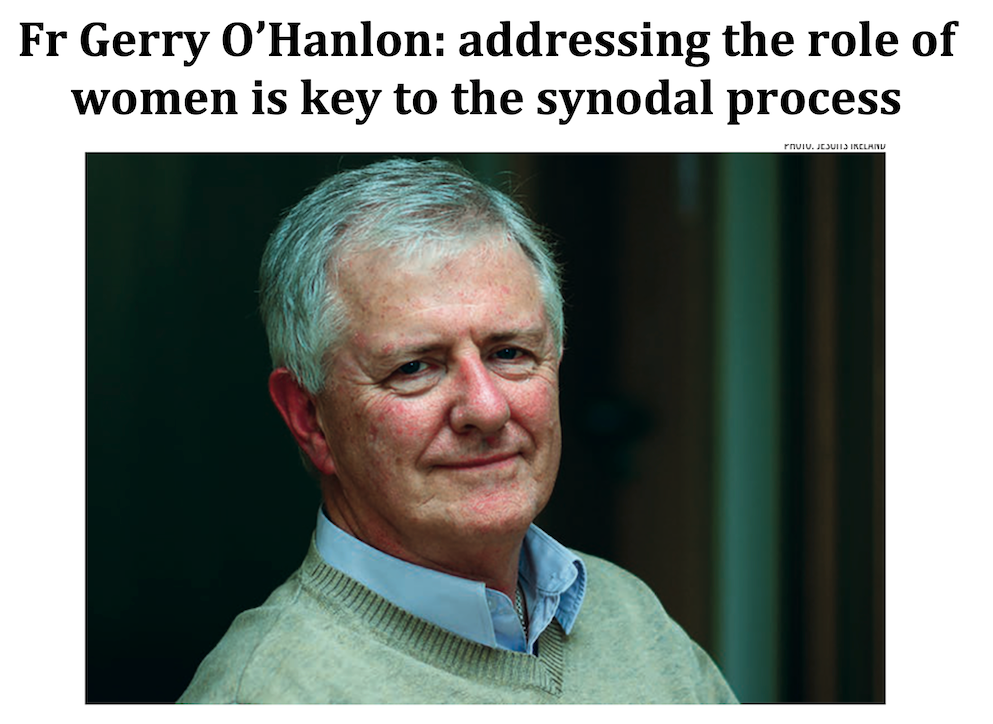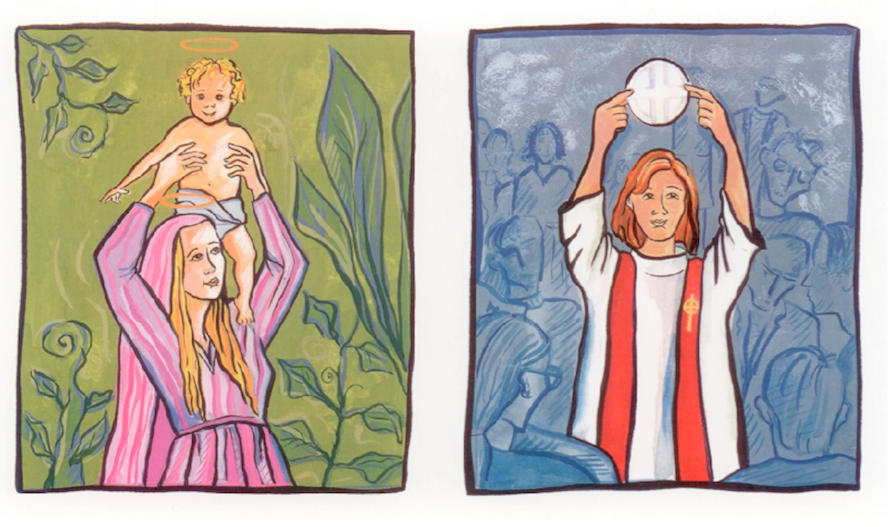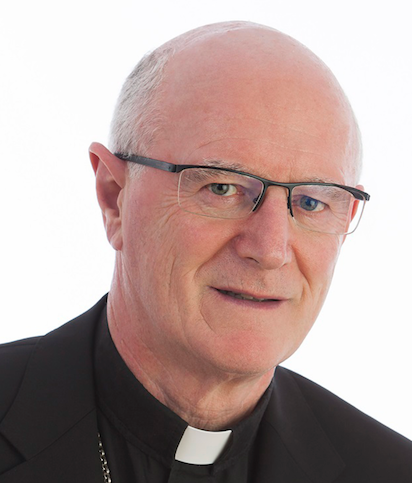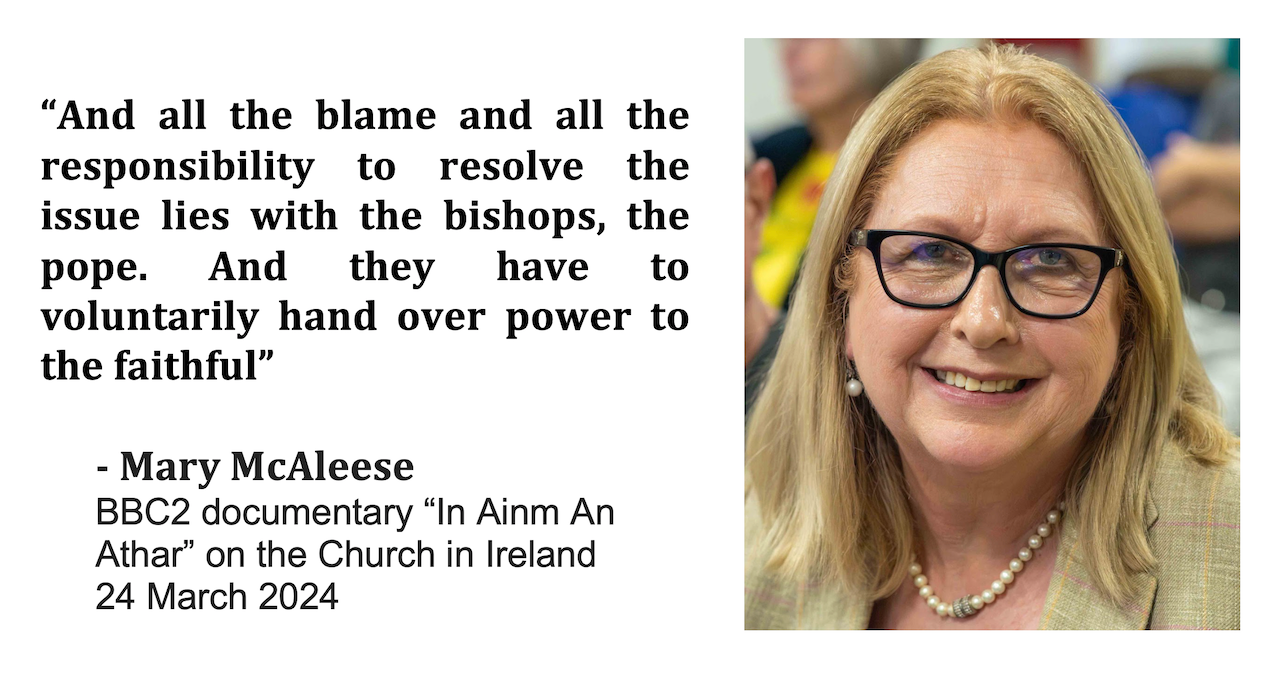Blog Layout
Julius' Office - Fr Bernárd Lynch
Colm Holmes • Feb 24, 2021
A Story – Al – AIDS Pandemic 1984
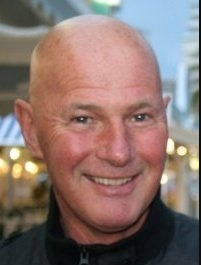
In 1982 I founded Dignity AIDS Ministry as a response to the pandemic ravaging the gay community in New York. The disease known first as GRID -- Gay Related Immune Deficiency — was first diagnosed in the gay community. The Church and state authorities engaged in unprecedented prejudice towards the sick and dying. The common narrative was that the 'perverts’ got what was coming to them. Dignity is a Catholic organisation for LGBTQI people and their friends. In the New York chapter we lost over six hundred of our membership to AIDS. This Article was written when there was no HIV testing. AIDS was seen as certain death. People were often diagnosed on a Wednesday and dead by Sunday. At that time, I was drafted onto the Mayor of New York’s Taskforce on AIDS.
A Story – Al – AIDS Pandemic 1984
The city had not shaken off as yet some garb of grey when my telephone
rang. "Good Morning", I answered.
"Good Morning", the voice shyly responded at the other end of the line. "My name is Al, and I was told by Gay Men's Health Crisis that I could call you if I wished to talk to a priest about being gay and stuff ... It would help if you could meet with me as soon as possible".
Julius’, the most famous and oldest gay bar in New York, is located on West Tenth in Greenwich Village. I recognized Al by his High School sweatshirt, and after the usual 'How do you do?’ "I hope you don’t mind meeting me in a Gay bar", Al uttered. "No, not at all", I answered. This place has become my unofficial office since the beginning of the AIDS crisis. I live in the North West Bronx and it is too much of a haul to get people who ask to see me travel there. The staff here know me and couldn’t be more gracious about my work and using the space to chat in confidence. Let’s have a beer.
I was taken aback by Al’s youthful appearance, and later on in conversation I was to discover that he was nineteen on his last birthday. He was tall, over six feet in height, with a slender, athletic build. My guess was that he was probably of Italian-lrish family background, with jet-black wavy hair, penetrating blue eyes and slightly sallow skin. He smiled easily and had that wonderful gift of incandescent warmth that makes one feel at ease right away.
There was one lesion (Kaposi Sarcoma) showing through his open-necked shirt which immediately confirmed what I already knew: that Al had AIDS. He was diagnosed two years ago, he told me, and at first went through the usual denial, bargaining, depression, that I have seen so many of my friends and associates go through in New York and London. "You don't sound like a priest to me", Al quipped after I said that part of the Godhead is possibly gay.
"Well,", I said, "if there is a God, it is us believers that are going to be most surprised at what He/She looks like; and on what grounds would you want me to assume that God is only heterosexual? After all, we hold that all people are made in God's image and likeness - gay and non-gay alike."
"Now you, like most gay people I know, had to reject the Church and society's definition of who God is in order to accept yourself as God made you to be. Through this painful metamorphosis comes the realization that the homosexual condition, like the heterosexual condition, is a gift of God, and if only we could accept that basic fact, so much pain would be obliterated. Everyone who cares to know, knows that people have as much freedom in choice of their sexual orientation as they do of the color of their eyes. There is no reputable psychiatrist or psychologist that would postulate otherwise.
"I know it must have been terrible for you when your parents asked you to leave after you came out to them as gay. I come across this all of the time. Metropolis’ like New York are for so many gay people their home away from home. In fact, only last week a young Irish chap who is in hospital with AIDS asked me to pick up his Mum at JFK and brief her with regard to his orientation and medical condition. "Per usual she quoted religion to me and gave me the much-too-familiar routine which she had been taught, to buttress her prejudices. But she is coming around. She loves her son, and that is a great plus to begin with. I encourage gay people to come out to their parents and families, for I do believe coming out of the closet at this particular time of Pandemic is quite possibly the greatest singular act of faith any human being could make - in himself, in others, in God. I would much prefer to be hated for who I am than loved for who I am not. The closet is such a lonely place.” ...
As his eyes filled with tears, Al said, "Yes, growing up gay is some trip, man. You know, as far back as I can remember I was always attracted to people of my own sex. At home, when I would be watching TV with my brothers, they would be raving about the beautiful chicks, whereas I was always turned on by the guys - but of course, couldn't admit it to myself, less still anyone else. In junior high and high school, I went out with some girls and tried to do it, but I felt really disgusted with myself. I remember there was this one girl on the swimming team with me, and she was always following me around. Everywhere I'd go she would suddenly appear out of nowhere. She was very pretty and not easy, if you know what I mean. Well, this one day before a meet, the other guys on the team started teasing me about when I was going to shift her and so on .... or was I a fairy or something other than a real man? I was sixteen at the time, and although I knew that the only one, I had the hots for was a guy named Bryan who was on the swim team with me, I decided to take Cathy out to prove how manly I really was!!! She ended up telling her friend that I was gay, and when word got to my friends, I didn't deny it. I couldn't deny it anymore.
"My parents eventually got the word of it and sent me to a shrink, which was a waste of my time and their money; but I played along until I finished high school. I told them then that my therapist wanted to see them to confirm what I had known from the beginning: that my sexual orientation could not be changed. They refused to see him, and instead called my uncle, a priest, in San Diego. He is a Monsignor - one of those prairie puritan types." I howled laughing at Al’s description of his uncle.
"Well, he wasn't much help. He told me homosexuality was an aberration, that if I could, 'meet the right girl’ that would 'set me straight'." We were both laughing at this point about "being set straight.” "How would your uncle like it", I said, "if someone tried to set him gay?". Al had left home shortly after his parents' request that he go for Aversion Therapy. One way or another he has been on the road since.
"Do you believe God is punishing me for who I am or what I did by giving me AIDS?” he asked. "Al, the idea of a just God waging germ warfare on the homosexual community (male homosexuals at that) together with millions of third world peoples, without including warmongers, drug dealers, wife beaters, slum landlords, etc. is absurd. This is not only distorting the faith; it is deserting it. That we all desire to be desired by one we desire is the one uncontested human proposition.” "What do you mean?" Al asked. “Well,", I answered, "did you ever stand in a gay bar cruising someone and not have your obvious interest in the guy returned?" "Yes, every gay person has experienced that", Al smiled.
"Well, I believe, in a certain manner of speaking, that everyone who bears the name, 'human', at some point in his or her life cruises God. In other words, all of us naturally and necessarily love to be loved, and if we had the possibility to be loved in life through death by a Supreme Being, we would ordinarily jump at it. Religious conversion - which is the experience by a person of the certainty that God loves him or her - is seen as the release, through knowing that the person I love loves me. The hunger for God's approval is built right into the human heart and cannot be gotten rid of.
"Precisely because the greater majority of gay people are so overwhelmed by main-line religion's rejection of them, their experience of God who is Love is destroyed. 'Hate the sin but love the sinner’. I am sure you have heard certain churchmen and women make statements about homosexuals? Well, in my ten years of working with the gay community, I have yet to meet someone who has experienced this statement as anything other than, 'hate the sin and hate the sinner."
"The facts, as you and so many gay and lesbian people have experienced them, are that in the Church there is little, if any, affirmation or acceptance of gay people. Yes, you can and will sometimes get an odd priest or religious who is genuinely pastorally concerned, but by and large the Church and religion are part of the problem rather than the solution to gay peoples' self-acceptance.
Sex is the mysterious and beautiful vehicle of procreation. It is, equally, the supreme, sublime expression of affection, love, and friendship – things, which are God-created, things which are good. And heterosexuals have no monopoly of affection and love. They are God's gifts to all. Any expression of our sexuality which exploits people, treats them cheaply, and excludes love and responsibility, is suspect. But any human tenderness, any warmth, any gentle kindling of mutual understanding, causes gladness in the Godhead."
"I believe there would be more freedom to be gay, not less, in a perfect world. A world as God intended would overflow with love. It is our sins and weaknesses which stifle natural warmth and spontaneity and love – and produce hatred, loneliness and lovelessness. But with envy, rivalry, and jealousy banished, every shade of friendship, tenderness warmth, comradeship, affection, companionship, sympathy, unity, and love would flourish. "Instead of issuing half-hearted and confusing reports, it is time the Church took its courage in both hands and asserted - loud and clear - that our varied sexuality is of God, and it is good. Homosexuality is not an aberration; it is not even second-best: it is part of the whole, part of the truth about human sexuality."
"You see, Al, faith in God's love can only come by contagion. Only carriers can truly give it to others. The love of God cannot, strictly speaking be taught to people - it must, if it is to be believed in, be first experienced as acceptance of all people as co-equals under God. The only way to give you, as a gay man, the experience yourself of being dignified and graced, is to treat you with dignity and be graceful to you.”
“No wonder you and so many gay and non-gay people ask, ’Is AIDS God's punishment?’ Coming out in Church, for the many gay and lesbian Christians, has, unfortunately, meant coming out of Church. Coming out of the closet – a process which the Church should be enabling and ennobling - is a process which must be experienced more often in the secular world rather than what passes for Christian community. If medical science does not know the answer to the AIDS pandemic, you can be sure theologians and priests don't either. AIDS is a virus, spread, in so far as we know, through the exchange of blood and semen. To venture to say more, either from God's point of view or our own, is to bask in the comfort of opinion without the discomfort of thought."
"I've gone on a bit and forgive me, but ..." but Al interrupted, "I get the message. I have always believed deep down God loved me as I am, but then everywhere I turned in the straight world I heard 'No'. So, naturally, when I was diagnosed with AIDS over a year ago now, all my Catholic guilt and fear started welling up and I began to believe that ‘they’ might be right. You remember back there when you said, ’We learn to love, not by being told to love, but by being loved.’, Well, I am going to need a lot of help in that. Do you think I can be part of the AIDS Ministry support group you run in St Francis?”
"Sure", I replied as I finished my beer and zipped up my sweatshirt, indicating a move. The sun was peeping through the concrete jungle as Al and I said our farewell at the Sheridan Square subway station.
A kid passed by and shouted, "Faggots! Queers spreading AIDS!" Amidst tears of laughter, we broke our embrace, and as I boarded my train, I thought chuckling to myself, maybe Oscar Wilde was right in thinking that, "God, in creating us, somewhat overestimated his ability".
Al's condition was a roller coaster over the next couple of years. He participated in our AIDS ministry program and was privileged to officiate at his funeral service at St. Francis Xavier’s. His parents would not even accept his ashes. While on vacation in Ireland the year of his death I buried his ashes in my mother’s grave. He is with the Angels.
Fr. Bernárd Lynch
See AIDS A Priest’s Testament for more information.
This compelling documentary shot for Channel 4 in the summer of 1987 tells the story of Fr. Bernárd Lynch and his ministry to people with AIDS in New York. The Irish born priest and psychotherapist was closely involved with the LGBT community and founded the first pastoral outreach to people with AIDS in the city. He was subsequently drafted onto the Mayor of New York's Task Force on AIDS. His ministry and his commitment to civil rights for LGBT people led him into conflict with the Catholic Church authorities as well as bringing him into the most harrowing situations; preparing young people for their untimely deaths. The documentary profiles the man, his ministry and the pressures that brought him close to the edge of his physical and spiritual limits. (Conor McAnally, Director)
Share
Tweet
Share
Mail

by Colm Holmes
•
02 Apr, 2024
Dear Cardinal Mario Grech, We welcome and embrace ‘Synodality’ as a way of ‘being Church’ that is at once both ancient and new in our tradition. We support the three key themes of the Synodal Process: Communion, Participation and Mission . We understand that it is “how” we relate to one another in the Church, our capacity to ‘be together’ in harmony and unity (i.e. Communion), that will help us fulfil our various responsibilities and roles (i.e. Participation) and by doing so empower us as “Church” to bear witness to the love of God in the world and to the unity of all humankind in God (i.e Mission). We are a network of Catholics who treasure our faith tradition and love the Church because, as our name states; we are all the Church. We wish to contribute constructively to its renewal and reform and have good relations with all. It is because we care so deeply about the Church and its mission that we have felt compelled over the years to speak up and question the injustice of structures, practices and teachings that have blocked, rather than channelled, God’s grace in the world. Combined with a lack of accountability and a culture of secrecy, these unjust structures, practices and teachings have contributed (among other egregious wrongs) to the clerical abuse of children and vulnerable adults, and the institutionalised discrimination of half the world’s population, women. Since the Second Vatican Council, it is understood that all the baptised regardless of the different ministries and responsibilities they hold, share a foundational equality by virtue of their common baptism. Contrary to popular perception, the Church (in theory at least) is neither a democracy nor a dictatorship but an ordered community where power and authority are exercised as Christian service and not power over anyone, in accord with the Gospel message. Vatican II has been crucial in reshaping our understanding of “Church” and highlighting the co-responsibility of the laity, along with the hierarchy, in working for its renewal and reform. By highlighting the baptismal dignity and equality of every baptised person, the Council has helped us to more fully appreciate that the Holy Spirit works and speaks through each lay woman and man in the Church, as much as it does through each member of the male hierarchy. The significance of this insight is that the sensus fidelium (i.e the sense of faith in all the faithful) is now regarded to be as vital a part of the teaching authority of the church (i.e the magisterium) as that of the hierarchy. Pope Francis is the first Pope to promote the sensus fidelium in the Church and his global Synodal Process explicitly gives expression to it. It is regrettable however that this shift in the internal dynamics of the Church’s magisterium has not been communicated better or explained clearly to the majority of Catholics. Many remain unaware that the teaching authority of the Church is no longer the exclusive preserve of the hierarchy. They do not know that the bishops and the Pope are obliged to engage in meaningful consultation with all the People of God before making key decisions. Significantly, the change does not diminish the role of discernment assigned to the bishops by the Council, but it does oblige them to anchor their discernment in an authentic and faithful listening to the People of God. And this is where we have a problem. It is one thing to be told “We are all the Church together” and another to experience the reality of such declarations. The most glaring example of this incoherence is the way women are treated. While we acknowledge the inclusion of 54 Women amongst 70 non-bishops voting at the Synod, we must also express deep disappointment and concern at the lack of progress so far. Although the ordination of women priests was mentioned in many countries, it was not included on the agenda for the Global Synod in Rome and most reports on the female diaconate have never been published. This is simply not good enough. It is not in the spirit of synodality to ignore the concerns of women who make up half of the world’s population. We call on the bishops to renew their commitment to the Synodal Process; to authentically listen (i.e. listen from the heart) to their sisters in the Church, to relinquish all attachments to power and privilege and to stop clinging to an out-dated model of church. The Church can not be a credible or effective sign of God’s love and justice in the world as long as its own structures and processes lack transparency and discriminate against half the membership of the baptised faithful (i.e. women, half the population of the world). Instead of criticising society to change and act differently, it is time for the Church (i.e the whole church, the ordained and the laity) to become the change it proclaims about God’s peace and justice in the world and to lead by example in the way it organises itself at every level. We Are Church International calls for the following steps representing concrete signs of synodality to be endorsed by the Synod in October 2024: 1. Shared decision making with equal numbers of laity and clerics at all Synods, Assemblies and Councils. 2. Opening all Ministries to women and to married persons, regardless of their sexual orientation. 3. Appointment of bishops to be overseen by committees of lay and clerics. 4. Unity in Diversity allowing countries to deal with their respective important concerns such as the ones mentioned in 1. - 3. above in accordance with their culture and the legitimate concerns of the believers in these countries. 5. Draw up a Church Constitution setting out the rights and responsibilities of all the people of God and a new governance structure. WICR have prepared a very good draft: https://www.wijngaardsinstitute.com/wp-content/uploads/2022/10/wicr__background_and_sources_of_proposed_constitution__2022.pdf Colm Holmes, Chair We are Church International Email: colmholmes2020@gmail.com Phone: +353 86606 3636 Dr Martha Heizer, Vice-Chair We are Church International Email: martha@heizer.at Phone: +43 650 4168500 W www.we-are-church.org We Are Church International (WAC) founded in Rome in 1996, is a global coalition of national church reform groups. It is committed to the renewal of the Roman Catholic Church based on the Second Vatican Council (1962-1965) and the theological spirit developed from it.
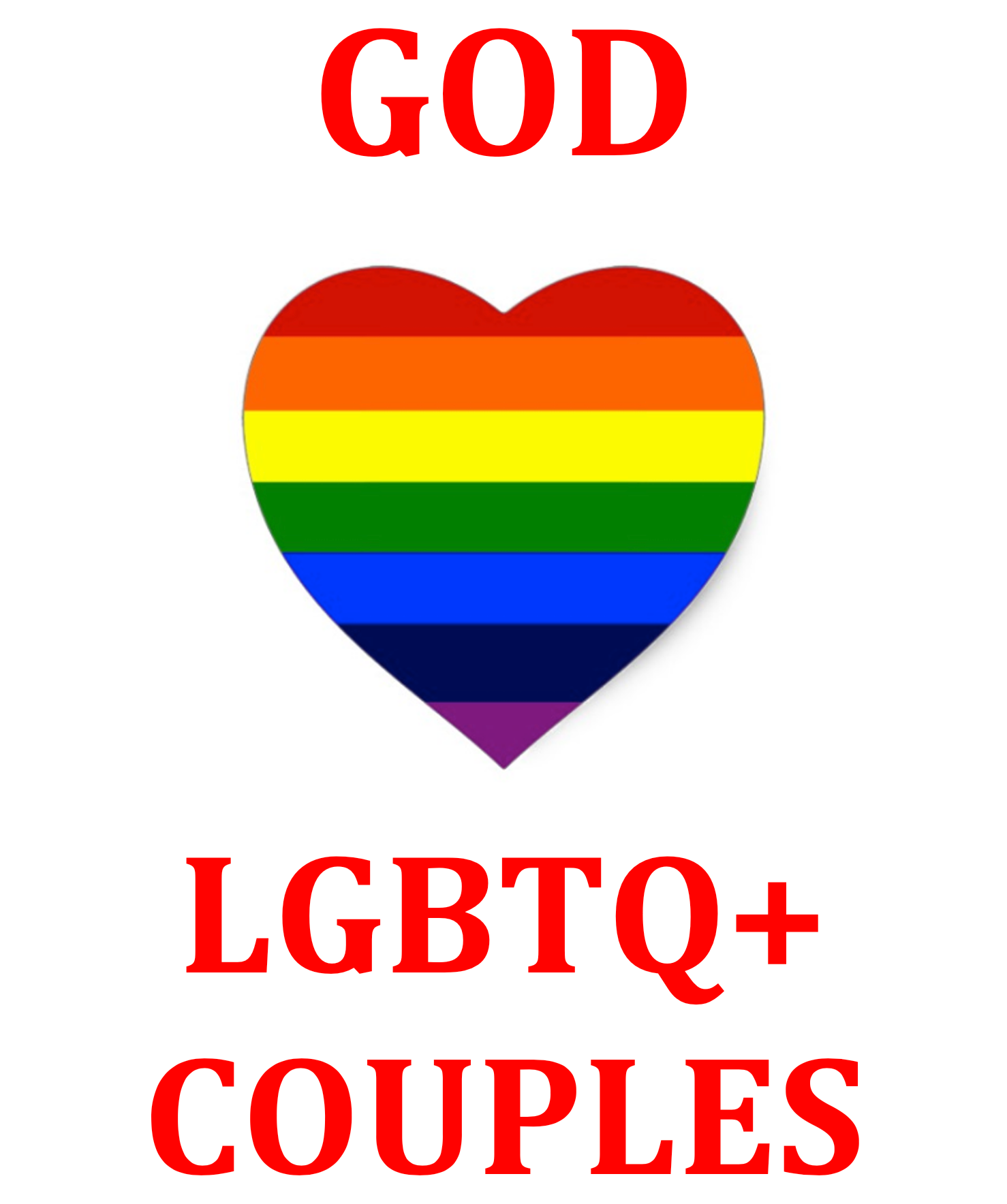
by The Japan Mission Journal, Spring 2024
•
26 Mar, 2024
Soline Humbert: Tensions between Love and Law I have neither the desire nor the competence to write an analysis of Fiducia supplicans (FS). Instead, I would like to share some real-life stories which have resurfaced for me upon reading the document. The first wedding I ever attended was that of my aunt and the one I came to call my uncle. I was four years of age. I knew they were getting married, but not that it was a civil wedding, ‘irregular’ in the eyes of the church since my uncle was a divorcee. The years passed by, they had a child, but the marriage broke up soon after. The separation and subsequent divorce were quite painful and left a lot of bitterness in my aunt. Three decades passed without any contact; then my uncle somewhat unexpectedly reconnected with his daughter. I was close to my aunt, and I saw how this challenged her deeply, including at the level of her faith. She had kept all these years a diary of the breakup, which contained many painful entries. As she prayed she understood she should let go of it, which she eventually did. Soon after, she met up with her former husband, and much to everyone 's surprise and especially hers, their love was rekindled from the ashes. Now in their early eighties they decided they would remarry. My aunt now found herself again in an ‘irregular union,’ since my uncle remained a divorcee (from his first wife). For the second time I attended their wedding which was, again, only a civil wedding. They were so much in love and so close, that people thought that they were celebrating a diamond wedding anniversary, not a wedding! They looked as if they had spent the last fifty years together. It was the eve of Pentecost and I could see the imprint of the Holy Spirit everywhere in the love between them. Their love which had died had literally been resurrected and there was so much healing and joy. A wonderful miracle. But for the church authorities this was a sinful relationship, akin to adultery. There could be no ecclesiastical blessing. And my aunt would from now on be again excluded from receiving Communion. Until my uncle died that is, a few years later In this story, the Canon Law concern with order and regularity cuts athwart the human development and the decisions based on love. The sharp distinction between those in a ‘regular’ union celebrated and blessed in church, and the others, the ‘irregulars,’ reminds me of the label put on some children, until recently, dividing them into ‘legitimate’ and ‘illegitimate.’ Pope Francis seems aware that the categories of Canon Law are not necessarily the prism though which God views our relationships, and that there are relationships that just do not fit into them but need pastoral accompaniment. And this leads me to the other category of people mentioned in FS, the category more highlighted in discussions: same-sex couples. The early headlines shouted: ‘Vatican blessings for gay couples!’ I welcomed what appeared to be a more inclusive approach after the CDF document of a few years ago (‘No blessings for gays’), which it is. And for the first time the word couple is used. But I was dismayed when I started reading the list of all the conditions and restrictions. A good friend of mine, who is gay, called it: ‘a mean, little blessing.’ Of course that may be better than no blessing at all, just as a crumb of bread is better than a stone, but I do not recognize in it the extravagant generosity of the God of Jesus. I didn’t know whether to laugh or to cry when reading the expanded list of restrictions in the subsequent clarification from the Dicastery, because of pushback about the very notion that gay couples could be blessed at all. I couldn’t believe it ended up specifying the blessings would be all of 10-15 seconds. This reminded me of another story, about my grandmother-in-law’s wedding day, 100 years ago. Decades later, when she spoke about it you could still hear some of the pain and hurt. She, a Roman Catholic had married a member of the Church of Ireland (Anglican) in what was then called a ‘mixed marriage.’ Yes, they had received a nuptial blessing. But it had been at 9 o'clock, in the sacristy, with no guests. Another mean, little blessing,’ as prescribed by canon law. An addendum is that when her husband died she was advised by the parish priest not to go to his funeral service because it was in a Protestant church, and therefore would be gravely sinful. She went anyway! FS went out of its way to stress the difference between the pastoral and the doctrinal, and that blessings belong to the pastoral dimension and do not affect in any way the doctrinal teachings of the Church. There is no change, no development, and it may be over-sanguine to imagine that this is step in that direction; it could even by a ploy for fobbing it off. Love cannot be controlled, and we need a good dose of humility when we claim we know what God's plan is for people. Besides a long life, two decades in the ministry of spiritual direction have shown me that the ways of God don’t fit in neatly in our ‘regular/irregular’ church categories. The Spirit blows where it wills, and so does Love. Let us celebrate it, rejoice in it, give thanks for it wherever we find it. As the late Fr Mychal Judge OFM asked: ‘Is there so much love in the world that we can afford to discriminate against any kind of love?’ 2. Joseph S. O’Leary: Accompaniment, Dialogue, and Compassion The clergy have taken responsibility for matrimony not only in sacramental celebration of weddings, including preparation for marriage, but also in for the canon law aspect, ensuring that couples were validly married; in many countries married in church counted as valid in the State’s eyes as well. When Pope Francis deplores ‘clericalism’ one of the things he means is a bureaucratic concern with order and regularity that is harshly unsympathetic with people in irregular situations—single mothers, divorcees, priests awaiting laicization—, shunning them rather than accompanying them. The various conundrums that can arise, especially in countries where divorce is easily available, require a response. Pope draws on the category of blessing to bridge the gap between those whose marital lives are in order and those who live with messy situations. Blessings are not sacraments but ‘among the most widespread and evolving sacramentals’ (Fiducia supplicans [FS], 8). ‘Pope Francis proposed a description of this kind of blessing that is offered to all without requiring anything’ (FS, 27). The short document does not develop a rich, sophisticated theological concept comparable with Augustine on Grace or Luther on Justification by faith. Blessing is invoked for a practical purpose, to close the gap between love and law, between boldly welcoming all and continuing to police moral and legal behaviors. The distinction between objective and subjective morality (whereby something objectively immoral could be ‘diminished in guilt, inculpable, or subjectively defensible,’ as Paul VI put it), which allowed condemnation of artificial birth control in principle and pastoral accommodation of it in practice, might be seen as a similar practical solution that avoids facing an issue with honesty, in open discussion. In the present case the most remarkable tension, or contradiction, is between the rejection of blessings of same-sex couples, characterized as sinful, only a few years ago and the encouragement of such blessings in the new document. The most striking and innovating feature of FS is that it addresses a kind word to gays and lesbians, something the Vatican has not done officially since it began to address same-sex questions explicitly in 1975 (Persona humana), and most ambitiously in a treatise on ‘the problem of homosexuality’ in 1986. Gays and lesbians appeared on the Vatican radar screen only as a problem for the CDF’s sense of order, and there was no sign of dialogue with the people concerned or of pastoral accompaniment of them in their path in life. On a flight back from Africa last year, Francis told reporters: ‘People with homosexual tendencies are children of God. God loves them. God is walking with them. To condemn someone like this is a sin. To criminalize someone for homosexual tendencies is an injustice’ (Wall Street Journal, 5 February, 2023). Such an utterance says almost nothing, but it stresses the idea of accompaniment, and this is also the central thrust of FS and of the Pope’s pastoral policy in general. FS is the first time this policy has got an official articulation, minimal as it is; the danger is that it may be seen as solving the issue for now, instead of engaging in the human dialogue and theological rethinking that is required. Still talking of ‘someone like this’ (an embarrassed locution), the papal language does not yet really amount to listening or dialogue, since there is no forum for such dialogue in the Church (not even in the recent Synod). Gay couples have been blessed by common sense pastors, and would be regarded by many of the clergy with admiration and envy. They have wrongfooted Vatican teaching by the unexpected success of their relationships and their impact on society. But there is a group whose need is greater and that FS does not mention, namely the T in LGBT, suffering from what the doctors call ‘gender dysphoria.’ Cardinal Fernández rather shockingly promised conservative critics unhappy with FS that they will be happier with a forthcoming document condemning ‘gender ideology’ and surrogacy. This kind of horse trading and scapegoating is inappropriate in dealing with real human beings and their suffering. I have a friend who is biologically female but identifies as a man and has had his name legally changed to match that gender identity. The problems and sufferings he has had to face are crushingly severe. Here too the church has a duty of accompaniment and dialogue, not pontification and condemnation. A few years ago our former Irish President Mary McAleese, an outspoken Catholic woman, as well as Ssenfuka Joanita Warry, a brave activist in Uganda on behalf of heavily oppressed gays and lesbians, were disinvited by a Dublin-born cardinal from a women’s meeting supposed to be held in the Vatican. Here is ‘clericalism’ again, and the refusal of dialogue. Pope Francis has put compassion center stage in his reading of the Gospel. In fact, that is perhaps the central feature of the character of Jesus, his quick response to those in distress and his speed in coming to their assistance, as a healer. Is that the trait we think of when we think of him? A regular orderly life, a bit of prayer, an offering of our work for the glory of God, is not that our Christian ideal? But the Gospel makes other demands: generosity, compassion, self-giving, sacrifice. We easily miss our neighbor’s distress, though it is all around us if we care to look for it. We choose the street where we will not meet someone asking us for money, stepping to the other side. There is a striking line in that cruel and almost unbearable play, King Lear: ‘Expose yourself to feel what wretches feel.’ When Pope Francis talks of accompaniment and dialogue he is calling us to that kind of compassionate tenderness. His heart is in the right place, and he has done quite a lot to disentangle the Gospel from the bureaucratic knots that threaten to stifle it. He has called on the whole Church to join him in this, through the synodal process, so as to become a welcoming, empathetic church, shaking off hypocrisy. In striking gospel joy and God’s unbounded love he encourages a more progressive and positive vision of human nature and its unexplored potential. 3. Mary McAleese: The First Step on a Damascene Road? The Declaration Fiducia supplicans (FS) promulgated by the Dicastery for the Doctrine of the Faith with Papal approval on 23 December 2023 has provoked controversy and an unusual number of post-publication curial and papal explanations about its content. For all that its subject matter deals with access of Catholics in irregular unions to simple, spontaneous, informal blessings, in fact its import for the universal Church is far from simple. It deals with an issue that had been discreetly nudging some European dioceses, notably German, Austrian, Swiss, and Flemish, towards a new culture of inclusion of gay Catholics which countenanced priestly blessings for gay couples who were civilly married as jurisdiction after jurisdiction in the West made provision for same-sex marriage and traditional hostile attitudes to homosexuality gave way to acceptance, dismantling of oppressive laws, and the assertion of equal rights. In the global south the opposite was happening as resistance to gay rights provoked tighter laws against homosexuality (sometimes with the encouragement of Catholic bishops). The issue flared when the German Catholic Church’s Synodal Way proposed to permit church blessings for Catholic gay civilly married couples. Their plan was decisively dashed when in February 2021 the Congregation for the Doctrine of the Faith published, with papal approval, its Responsum to ‘a dubium regarding the blessing of the unions of persons of the same sex.’ It concluded that ‘the Church does not have, and cannot have, the power to bless unions of persons of the same sex.’ The reasons advanced included that they would constitute ‘a certain imitation or analogue of the nuptial blessing’; homosexual unions are in no way ‘similar or even remotely analogous to God’s plan for marriage and family’; such relationships are not ‘objectively and positively ordered to receive and express grace’: God ‘does not and cannot bless sin.’ If the responsum was designed to end all debate on the subject it had the opposite effect. Its judgmental language chimed badly with what had been widely perceived as a more tolerant attitude in papal comments to reporters on a flight back from Brazil after World Youth Day, 29 July 2013: ‘If someone is gay and is searching for the Lord and has good will, then who am I to judge him?’ However often overlooked was the fact that he had prefaced his remarks by restating church teaching that views homosexual acts as sinful. Indeed more recently he had echoed Pope Benedict’s opposition to admitting homosexual men to the priesthood when in a private session, he advised the Italian Bishops’ Conference on the subject of admitting gay men to seminaries to train for the priesthood saying: ‘If in doubt, better not let them enter.’ There can be little doubt but that in the clamor of disappointment that greeted the Responsum ad dubium, Pope Francis came under enormous pressure to bring some kind of reconciling clarity to his views particularly as the reports from Synodal discussions at diocesan level, by then were indicating strong support for reform of church teaching on homosexuality among other things. Shortly before the October 2023 Synod of Bishops met, a small group of conservative cardinals pushed Pope Francis for that clarity. He did not give the answer they wanted. Instead according to FS the possibility was opened up of revisiting the Responsum ad dubium and ‘offering new clarifications’ ‘in light of Pope Francis’ fatherly and pastoral approach.’ The Declaration was presented as an explanatory update on the Responsum ad dubium rather than what it actually was, a contradiction which still leaves a lot of doubt about where the Pope is steering the bigger debate on magisterial teaching on homosexuality. At one level the Declaration can be seen as little more than a limited concession to gay Catholic couples which permits a priest, if asked, to give informal ’short and simple pastoral blessings (neither liturgical nor ritualized) of couples in irregular situations (but not of their unions).’ The Declaration ‘remains firm on the traditional doctrine of the Church about marriage, not allowing any type of liturgical rite or blessing similar to a liturgical rite that can create confusion.’ To avoid confusion, the blessing must be free of all ‘wedding’ context including ‘any clothing, gestures, or words that are proper to a wedding’ (FS, 31). The Declaration suggests that ‘such a blessing may instead find its place in other contexts, such as a visit to a shrine, a meeting with a priest, a prayer recited in a group, or during a pilgrimage’ (FS, 40). At this level the Declaration slaps down the more liberal, advanced dioceses which had moved towards formal liturgical blessings for gay couples, while also slapping down the narrow view of blessings and even narrower view of God’s grace presented in the Responsum ad dubium which offered precisely nothing to gay Catholics. I remember my own reaction to the Responsum and in particular the realization that it had been published with the full acquiescence of Pope Francis. As the sister, mother, and mother-in-law of three deeply Christian gay men I was horrified to the point of despair, enough to send a scathing letter to Pope Francis in which I quoted (in my own translation) the final stanza from the famous Irish love poem ‘Dónal Óg’: You took my North, you took my South, You took my East, You took my West, You took the sun from me and you took the moon And I do believe you even took my God from me. Nowhere in that disheartening document could I see Christ, nowhere could I see God’s love, and worse still nowhere could I see a place to be part of a loving God’s complex family where grace flowed freely. I imagine I was not alone. I imagine Pope Francis was the recipient of a lot of letters from the faithful who felt they had reached the end of the road of faith in the Church and faith in him as its leader. The Declaration when it came was very much an act of putting a finger in that disintegrating ecclesial dyke. If that is all it is it will not be enough. At another level, the most critical level, the Declaration has to be potentially the first step on a Damascene road to the ‘fundamental revision’ of Catholic Church teaching on homosexuality called for by Cardinal Hollerich of Luxembourg, then President of the Commission of the Bishops' Conferences of the European Union (from 2018 to 2023) and currently Relator General of the Synod on Synodality. He believes ‘that the sociological-scientific foundation of this teaching is no longer true’ and that ‘we are thinking ahead in terms of doctrine. The way the pope has expressed himself in the past can lead to a change in doctrine.’ Cardinal Hollerich fortunately is not a lone voice, though he has many episcopal and other opponents within the Church. Accompanying each other, listening to one another, standing in the shoes of the other, and then starting anew in dialogue and consultation, we may outgrow frozen teachings on LGBT questions, as we previously overcame horrendous historic teachings which favored slavery, sexism, sectarianism, all with countless victims. Fiducia supplicans may seem to offer extremely little from Mother Church to her LGBT children, yet it could signal the beginning of an era of discussion, learning, and frank sharing, melting long centuries of hypocrisy.
About us
We are working to develop inclusive communities based on our 6 Aims, while being open to engage with all sections of the church about our lives in the church today.
Contact Info
(086) 606-3636
info@wearechurchireland.ie We Are Church Ireland
Saint Francois
26 Avoca Avenue
Blackrock A94 Y1X3
County Dublin
Ireland
Join We Are Church
Thank you for contacting us.
We will get back to you as soon as possible.
We will get back to you as soon as possible.
Oops, there was an error sending your message.
Please try again later.
Please try again later.


